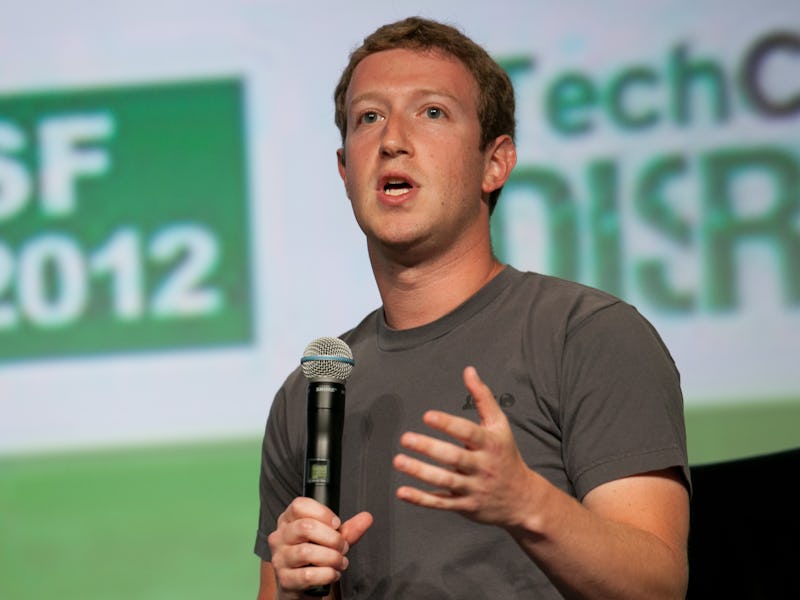Facebook Libra: Critics Can Rejoice as the Crypto Continues to Faceplant
"I can't think of a tech company less well-suited to lead the cryptocurrency revolution."

Libra, Facebook’s big jump into the cryptocurrency space, is off to a shaky start.
No sooner had Facebook announced the project that questions started to swirl about its trustworthiness. The project promises a coin linked to a basket of assets to ensure stability, avoiding one of the main pitfalls of bitcoin, that its price fluctuates too much for people to want to spend. But while it’s not slated for launch until the first half of 2020, legislators started sounding the alarm over whether Facebook should take even greater control of global finances. This should come as no surprise.
“I can’t think of a tech company less well-suited to lead the cryptocurrency revolution,” Ángel Díaz, counsel at New York University Law School’s Brennan Center, tells Inverse.
On Wednesday, the company decided to take action. In a wide-ranging blog post from project leader David Marcus, he noted how the team made a “deliberate decision” to announce early, precisely so that it could encourage “open discussion by design.” Prior to the launch, it also held an “initial consultative phase” with central banks, regulators, and others from around the world.
Libra's list of partners.
There may be some value in the vagueness.
“Libra has smartly left certain aspects of the system vague and given themselves ample time to work through issues as they arise prior to launching the live system in 2020,” Drew Hinkes, general counsel and co-founder of the Athena Blockchain, tells Inverse. “The Libra whitepaper states that Calibra is ‘continu[ing]to evaluate new techniques that enhance privacy.’ Calibra’s privacy related document indicates that it will be ‘replaced by a comprehensive data policy prior to launch.’”
Vagueness isn’t the only criticism that has been leveled at Facebook, a company that, despite its size, remains tightly controlled by founder Mark Zuckerberg. To that end, Marcus also reiterated that, although Facebook is the most valuable and highest-profile company associated with the project, its subsidiary Calibra is just one of 28 founding members. The group will form an association, which it hopes will eventually number 100 members by launch, which will work as an equal team to govern the project.
Still, politicians and campaigners have continued sounding the alarm.
Facebook and Libra: Why People Are Concerned
On Tuesday, the United States’ House Committee on Financial Services penned a letter to Facebook asking for “an immediate moratorium” on Libra “until regulators and Congress have an opportunity to examine these issues and take action.” Congressman Maxine Waters previously requested a moratorium on June 18, the day Libra was unveiled.
The Tuesday letter cites the fact that, with over two billion monthly active users, Facebook is “already in the hands of over a quarter of the world’s population.” This has already caused concern with its influence on the United States elections, as fake news and data misuse became headline fixtures. Díaz notes that the firm has been under an FTC consent decree over privacy violations for over half its operating life.
“Facebook can’t even navigate the permissive regulatory scheme in which it currently operates,” Díaz says. “Why should anyone trust it to enter the world of financial services?”
Facebook has been at the heart of a number of scandals.
Facebook’s Response to the Backlash
One of the main elements to Facebook’s strategy appears to be to create some distance. In his blog post, Marcus noted that Facebook “will not control the network, the currency, or the reserve backing it.” He also pointed out Facebook will not see any financial data from the Calibra subsidiary, and it will only act as one member among equals in the association. Marcus concludes that “you won’t have to trust Facebook to get the benefit of Libra.”
That might not be enough to quell legislator fears. The House committee is scheduled to hold a hearing about Libra on July 17, the day after Marcus will appear in front of a Senate Banking Committee meeting.
The G7 group of countries, which includes the United States and France, is also planning to take action. France announced plans to create a task force to study the cryptocurrency further. The country’s finance minister, Bruno Le Maire, called on the group to discuss the project at the July meeting, adding that it is “out of the question” that Libra becomes a “sovereign currency.”
Others have struck a more cautiously optimistic tone. Mark Carney, governor of the Bank of England, declared that it could “improve financial inclusion,” one of the project’s proposed goals. Carney also said he’d approach Libra with “an open mind but not an open door.”
A series of scandals surrounding Facebook may have hampered Libra’s chances of success. Although it has the involvement of Visa, MasterCard and other trusted names, the Libra saga may demonstrate that Facebook’s involvement in a project like this is more curse than blessing.
The author of this story has a stake in bitcoin and Ethereum.